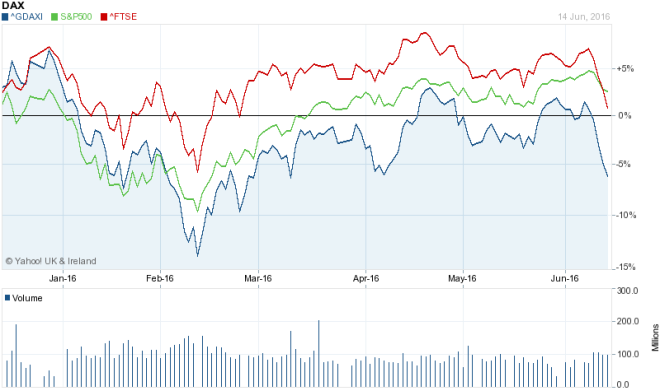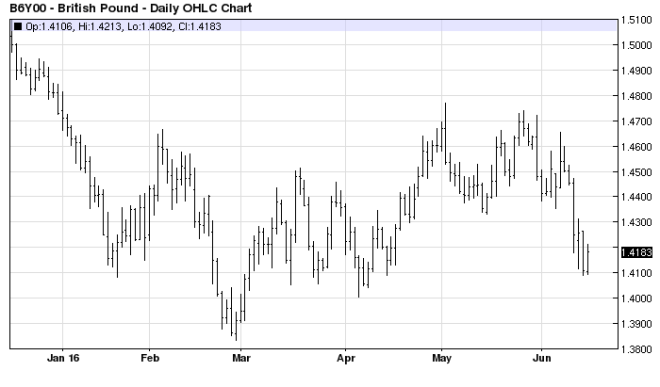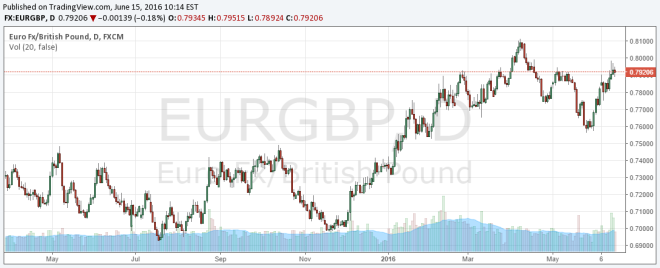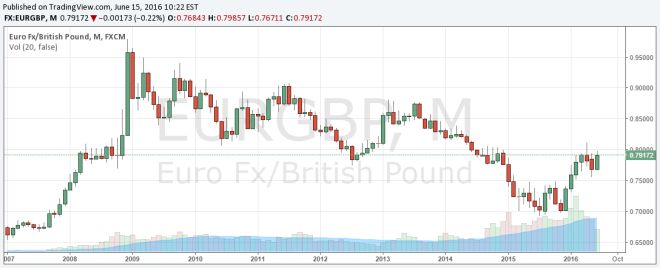
Macro Letter – Supplemental – No 3 – 17-6-2016
What to do if the Brexit hits the fan? Prepare to Invest
- Opinion polls suggest that the Brexit camp may win the referendum this month
- GBPUSD has made new lows on the news
- UK stocks have fallen to levels last seen in March
- UK Gilt yields have reached historic lows and credit spreads have widened
Whilst I still think it most likely that we will vote to remain in the EU, if the UK electorate vote to leave the EU on 23rd June, this is what I believe may happen and here is one investment opportunity which might be worth considering:-
Short-term
Sterling will weaken, International capital outflows will hit UK stocks and Gilts. A “technical recession” will ensue.
Medium-term
A weaker currency will cause inflation and exports to rise. Higher yields and a more competitive currency will lead to capital inflows into UK stocks and Gilts. Sterling will recover.
Background
Governor Carney of the Bank of England sees the risk of a “technical recession” should the UK leave the EU. Christine Legarde, MD of the IMF, says she has “not seen anything positive” about Brexit in economic terms, predicting a rebound in growth if the UK remains, but the possibility of a stock and housing market crash if we leave.
Countering these Cassandras’, Iain Mansfield, the director of trade and industry at the British Embassy in Manilla, won the IEA prize for his essay A Blueprint for Britain: Openness not isolation, stating:-
The outcome would be to accelerate the shifting pattern of UK’s exports and total trade away from the EU to the emerging markets, where the majority of the world’s growth is located. A more business-friendly regulatory regime and the new security of the City of London from European interference will enhance competitiveness and compensate for the partial loss of access to the European market.
Elsewhere commentators talk of a “Neverendum” even in the event of Brexit.
What to do
The FTSE100 Index is slightly below the middle of its 2,000 point range of the last five years. Despite recent weakness, a Brexit vote will lead to a further weakening of the Sterling Effective Exchange rate. Capital outflows will hit stocks, however, a weaker currency will help the Bank of England to meet its inflation target and exporters will benefit, especially those trading with structurally faster growing economies such as China, India and a number of Commonwealth countries.
Prime Minister Cameron announced the date for the UK referendum on 20th February. The chart below compares the DAX against the FTSE and the S&P500 over the past six months. On the face of it the UK stock market has paid little notice of the vote, although the weakening of Sterling may have been supportive for the more international FTSE companies:-

Source: Yahoo Finance
Another interpretation of the price action in financial markets suggests that the markets expect the UK to remain. Similar price action proved more reliable than the opinion polls both during the Scottish Referendum of 2014 and the Quebec Referendum of 1995. Cable (GBPUSD) dipped in March but has since recovered, partly spurred on by initial polls predicting that UK voters would choose to remain, lately it has weakened once more. The charts below are from Wednesday 15th, the Sterling has weakened further since:-

Source: Barchart.com
EURGBP has been weakening over the past year:-

Source: Tradingview.com
When viewed over the past ten years, however, the nature of the price move appears less remarkable. Eurozone (EZ) growth has been improving after a period of protracted weakness. Could an improvement in sentiment towards the EZ be the catalyst rather than expectations of the demise of Sterling?

Source: Tradingview.com
Once the initial turmoil of Brexit subsides, fears about the stability of the Eurozone will return; during the last decade the UK witnessed “safe haven” investment flows from Europe, especially into real estate. Inflows will resume as the European political landscape polarizes further. The UK construction sector will benefit. Reform of planning legislation, more likely once the UK has regained control of its borders, could substantially increase the attractiveness of the building sector. In many ways the housing sector represents an each-way bet. Should the UK electorate vote to remain deferred demand for property is likely to resume.
The UK stock market dividend yield is around 4%: by other metrics, including the Cyclically Adjusted Price Earnings ratio, the market is not overly expensive either. A Brexit decline may provide an excellent buying opportunity. Prepare to invest.
